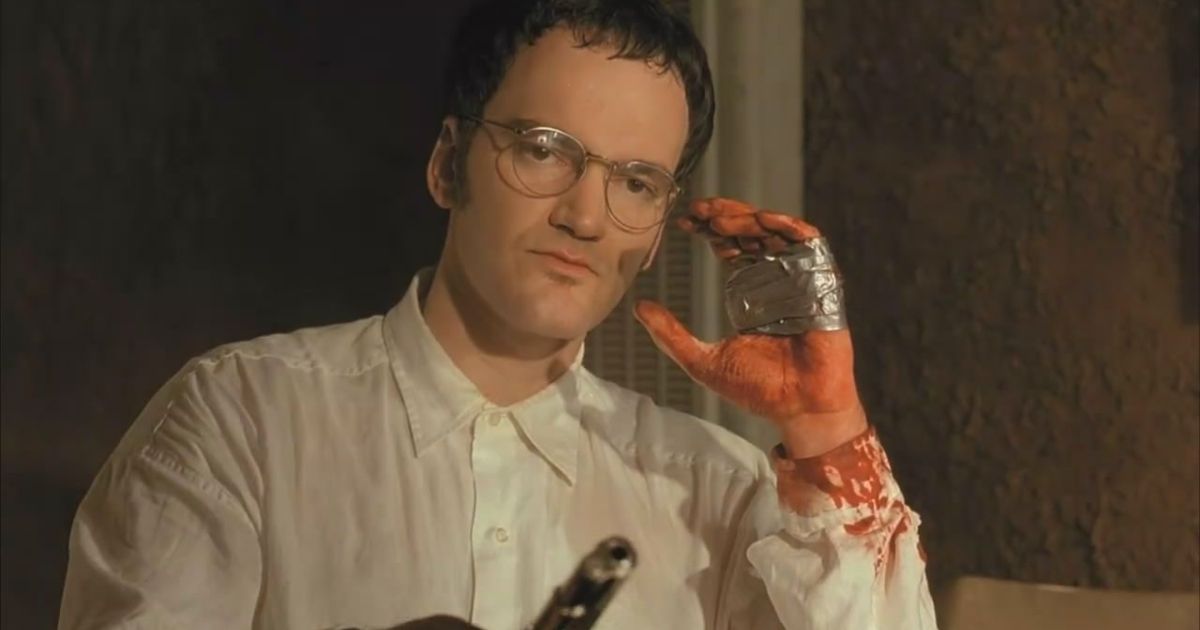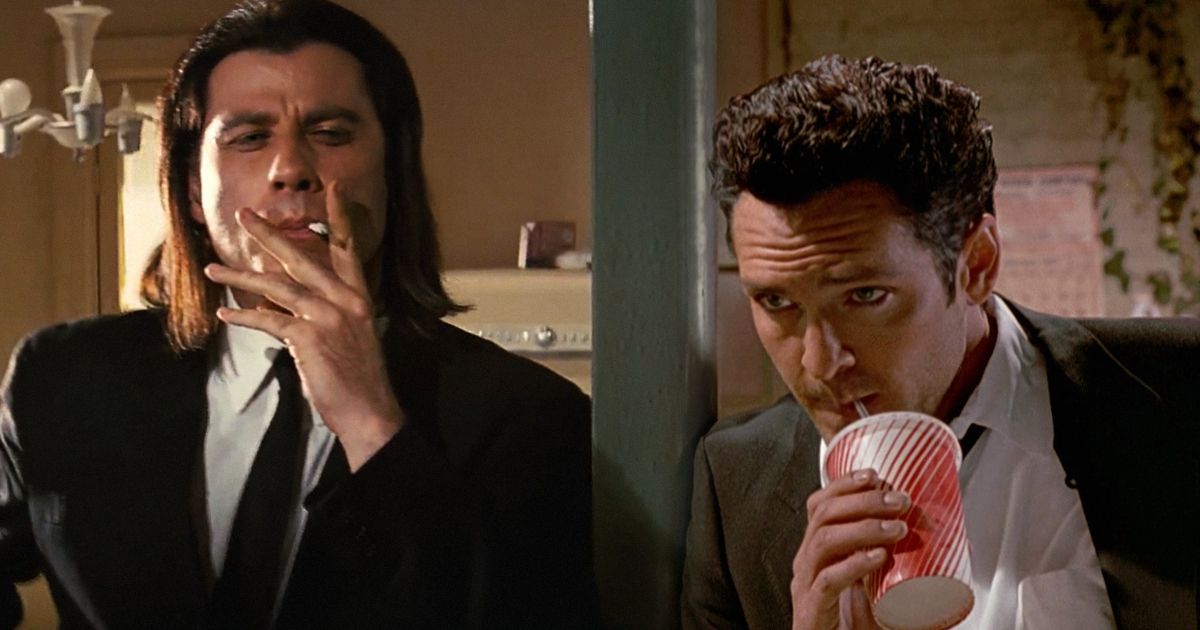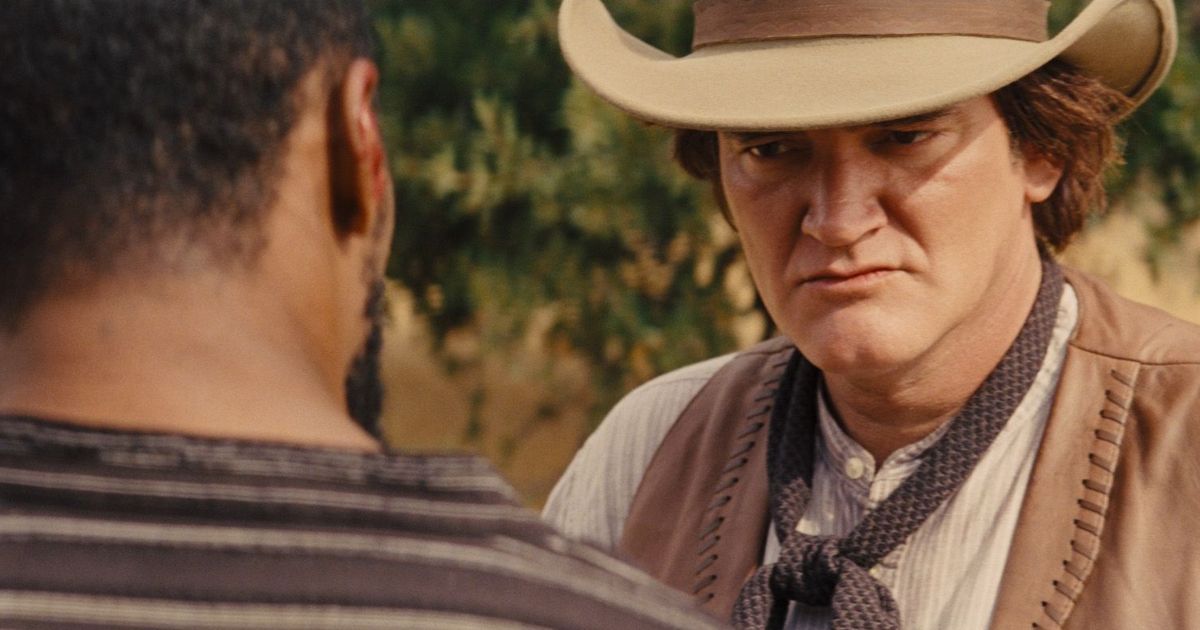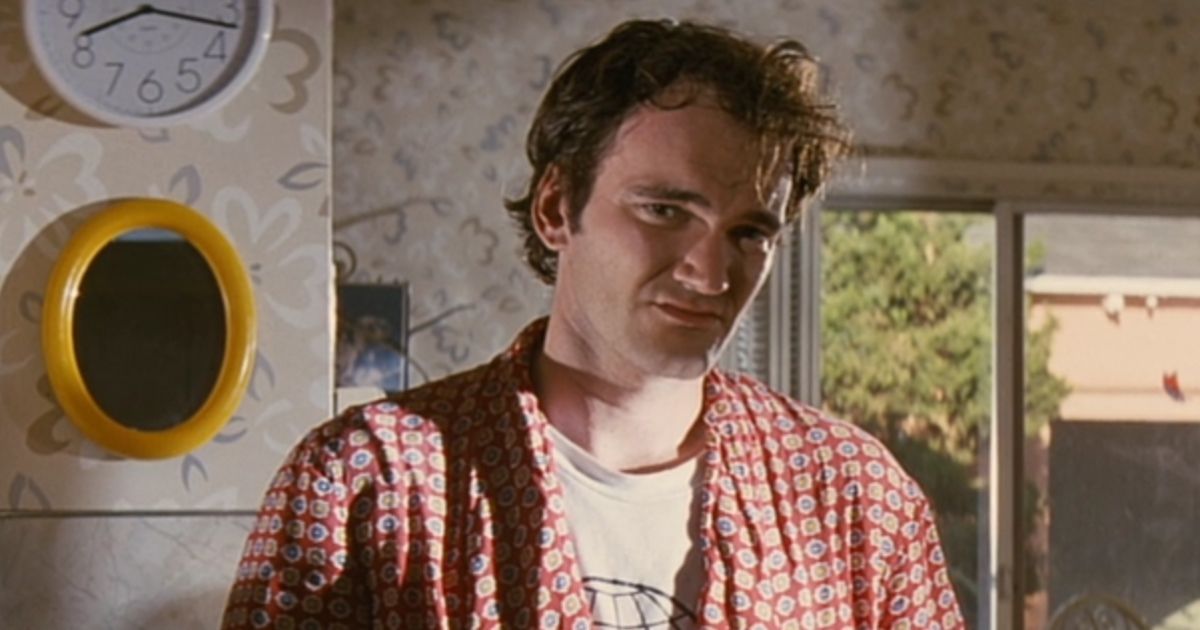The next chapter of Quentin Tarantino’s career has arrived. In November 2022, HarperCollins published the acclaimed writer-director’s long-teased, first written work of film criticism, Cinema Speculation. The book shines a light on who the filmmaker is today as it concerns the movies a young Tarantino grew up watching in the late 1960s and early 1970s. It also comes on the heels of his foray into writing explicitly for the page with the novelization of his 2019 film Once Upon a Time in Hollywood, which was met with positive reviews upon its publication (again by HarperCollins) in June 2021.
The publication of Cinema Speculation is nothing short of a miracle for fans of Tarantino and those interested in film history, as the director is notorious for teasing the press with supposedly “upcoming” projects that fail to materialize. Sure, almost every director in Hollywood has projects that fall through. That’s the nature of the film business. But over the course of his career Tarantino proved himself to be a world-class tease.
Tarantino Has Teased Several Movies That He'll Likely Never Shoot
Among his teased projects include movies like Kill Bill Vol. 3, a Star Trek movie which Tarantino unabashedly claimed would have been “Pulp Fiction in space,” and Killer Crow, an Inglourious Basterds spinoff which would have followed a “bunch of Black troops” who, after being left for dead in Italy by the American Army, go on a murdering rampage up to Switzerland during WWII. None of these films seem likely to happen. Though Kill Bill Vol. 3 might have a fighting chance.
However, the unmade Tarantino film that seems the least likely to materialize is his proposed prequel to Reservoir Dogs (1992) and Pulp Fiction. This film was supposed to unite the Elvis-like criminal brothers, Vic and Vincent Vega (played by Michael Madsen and John Travolta, respectively) on a little vacation in Amsterdam. If it were made today, the Vega Brothers movie would require some serious de-aging visual effects on Madsen and Travolta of the sort that Martin Scorsese employed on the cast of The Irishman (2019).
A Vega Brothers movie would also draw unfair comparisons to Martin McDonaugh’s dark buddy comedy In Bruges (2008), which concerned a pair of hitmen lying low in Bruges, another Belgian city. These comparisons wouldn’t exactly be fair since McDonaugh was clearly influenced by Pulp Fiction’s iconic dialogue scene where the talkative hitman Vincent Vega recalls his experiences in Belgium and other European countries. Who could forget when Vincent (Travolta) says:
“In Amsterdam, you can buy beer in a movie theatre. And I don’t mean in a paper cup either. They give you a glass of beer, like in a bar. In Paris, you can buy a beer at McDonald’s. Also, you know what they call a Quarter Pounder with Cheese in Paris?”
Finally, there is his Holy Grail of teases: “The 10th Film By Quentin Tarantino.” Whatever that movie ends up looking like, Tarantino has repeatedly claimed it will be his cinematic swan song. Now this is a bold claim that Tarantino usually makes while sitting across from a dumbfounded TV talk show host who invariably proceeds to try to talk the filmmaker out of an early big-screen retirement. But in spite of all their flattery and dismay, Tarantino doesn’t budge. He appears to be serious about only making one more theatrical film.
Tarantino Has Teased Various Projects Outside Feature Filmmaking
Piled on to Tarantino’s stack of unmade movies is his flirtation with playwriting and additional novelizations from his personal back catalog of films. Tarantino began work on a Reservoir Dogs novelization before deciding to strike Once Upon A Time In Hollywood while it was still hot.
While promoting Cinema Speculation at a live event in New York, Tarantino teased his plans to direct a miniseries in 2023. But after his proposed Bounty Law TV show hasn’t seen the light of day, it's difficult to know how serious the film director really is about jumping into television. Then again, many critics were pleasantly surprised in 2021 when Tarantino finally delivered a book with his Once Upon A Time In Hollywood novelization after teasing a literary career for many years.
It looks as though the director’s projects away from theatrical filmmaking are beginning to snowball. After guest starring on countless podcasts throughout the 2010s, Tarantino started his own. The Video Archives Podcast features QT with his longtime friend and Pulp Fiction co-writer Roger Avary. In each episode, Quentin and Roger watch and review three classic films, and they don’t just watch them on Blu-rays or with a pristine original negative screening in QT’s home cinema. They watch the vintage VHS tapes from the actual inventory of the Manhattan Beach video store in Los Angeles where the two worked together in the 1980s before becoming filmmakers in their own right.
Tarantino Has Even Teased More Books of Film Criticism Like Cinema Speculation
Tarantino has teased even more books of film criticism like Cinema Speculation which have yet to be released. The most notable of these is his unfinished (and possibly abandoned) book on the filmography of Sergio Corbucci. While on the phone with Leonardo DiCaprio’s character in Once Upon A Time In Hollywood, Al Pacino’s character refers to real-life Corbucci as “the second-best director of Spaghetti Westerns in the whole wide world.” What began as a book on Corbucci eventually turned into the screenplay for Django Unchained (2012). Though Kanye West would have you believe that he came up with Django Unchained first.
It’s easy to see how Tarantino got distracted while rewatching the Spaghetti Western filmmaker’s old catalog, since Corbucci directed the original Django (1966), starring Franco Nero in a loose ripoff of Sergio Leone’s A Fistful of Dollars (1964). After Fistful quite literally put Spaghetti Westerns on the map, Leone (the other Sergio) went on to direct For A Few Dollars More (1965) and The Good, The Bad, And The Ugly (1966). This is why Al Pacino’s fictional character in Once Upon A Time In Hollywood might refer to Leone as “the first-best director of Spaghetti Westerns in the whole wide world.” In the real world Leone’s films would become referred to as The Dollars Trilogy and The Man With No Name Trilogy, as each Western film stars Clint Eastwood in his most iconic role as the leatherfaced, cigarillo-biting “Man With No Name.” Harry Calahan from the Dirty Harry films is a close second for Eastwood’s most iconic roles.
It’s topics exactly like this that Tarantino tackles head on in Cinema Speculation. He has an entire chapter analyzing Don Siegel’s Dirty Harry (1971) which also diagnoses the crucial flaw of the many sequels. In fact, apart from a couple of autobiographical chapters (which are a real treat for fans of the filmmaker), Cinema Speculation is made up almost entirely of critiques just like the one on Dirty Harry.
In any event, this cinematic detour from his early literary pursuits turned out to be profitable for Tarantino. Django Unchained remains his highest grossing film, taking in $425 million off a budget of $100 million, and it won him his second Best Original Screenplay after Inglourious Basterds (2009). Christoph Waltz also won a couple of back-to-back Best Supporting Actor Oscars for his incredible roles in Tarantino’s Basterds and Django.
Tarantino Seems to Enjoy Teasing the Press
So why does Tarantino tease so many projects that he must realize he will be able never make? Perhaps he truly wishes he could have time and resources to complete each one of them. Then again, in light of how contentious his relationship has been with the press who have repeatedly harangued him over the violence in his films, perhaps the man just enjoys toying with them. He knows full well that a flock of headlines will dive into whatever breadcrumbs he decides to toss during press junket interviews or while guesting on podcasts, however offhand or official the announcement may sound.
Nevertheless, with two literary works and after debuting his own podcast, it's beginning to feel like Tarantino might actually get around to pumping out some of those long-teased projects. Since every announcement from the director should be taken with a grain of salt, for now his fans should celebrate that Cinema Speculation has finally come, signaling a more literary shift in Tarantino's career.





